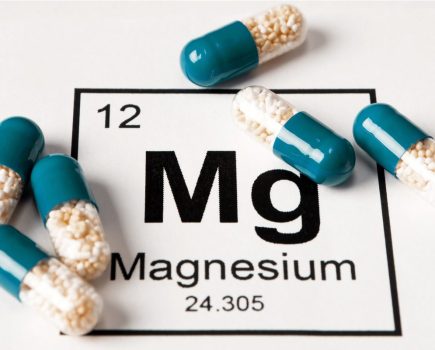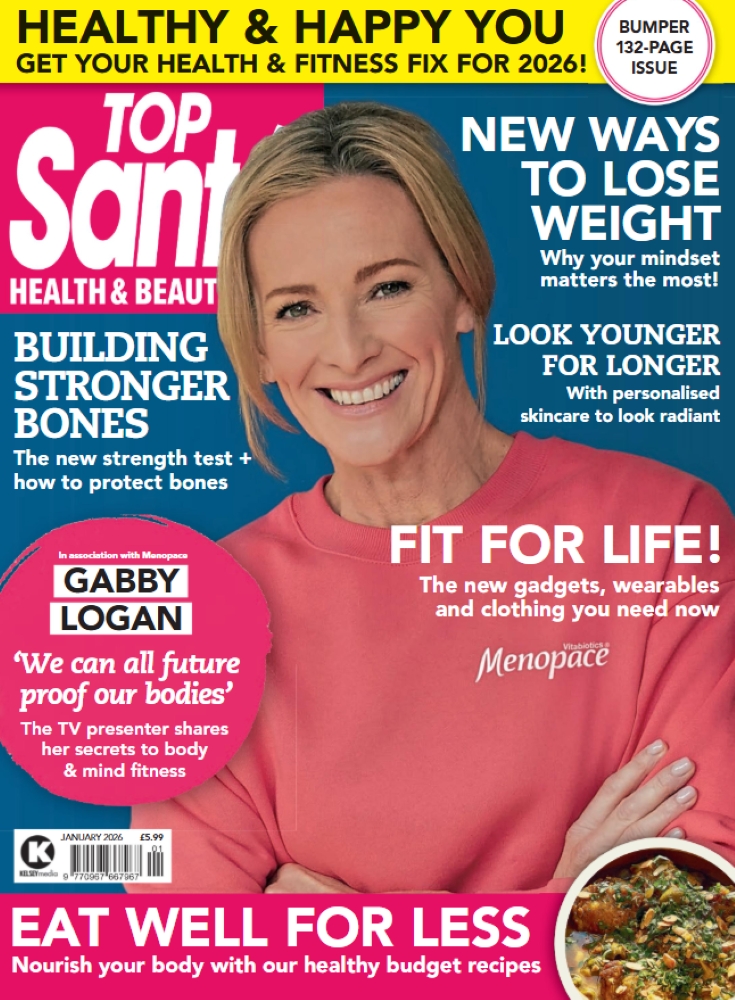TV presenter Julia Bradbury, 55, talks to Jo Ebsworth about the profound shift in her approach to nutrition and wellness after her 2021 breast cancer diagnosis, and how embracing ancestral living and real food has dramatically transformed her health.
Words: Joanna Ebsworth. Images: David Venni; Hunter & Gather.
Before cancer, I would say I was healthy with a little “h”. I certainly think I was really healthy in my 20s, but then life happened. And my job was and still is very involving, with a lot of travel and crossing time zones. But I didn’t really honour my sleep, and I didn’t understand the importance of moving or eating at the right time during the day.
I was healthy because I walked and enjoyed nature and ate reasonably healthy food (or so I thought), but I didn’t really do it with intention and with purpose, and I didn’t do it with any thinking about how that fitted in with my lifestyle.
My health now is poles apart from what it was, but it didn’t happen overnight. As soon as it was confirmed to me that I had breast cancer, I started doing the research straight away, which quickly became “mesearch”. I was like, ‘Right, okay. This, to me, is a warning. This is a message that I might think I’m healthy and in a good place, but I’m not’.
I needed to start understanding that and looking at things that I felt were contributing, not causing – big difference! I didn’t want to blame myself, and I say that to other people too. But I do think disease can be a message to us about how we’re living.
My new book, Hack Yourself Healthy, is about my personal journey to reclaiming my health. I’ve put myself through all these incredible tests and experiments to really examine myself in detail for it, and there’s lots of experts who help to explain everything beautifully and unpack it in an accessible way.
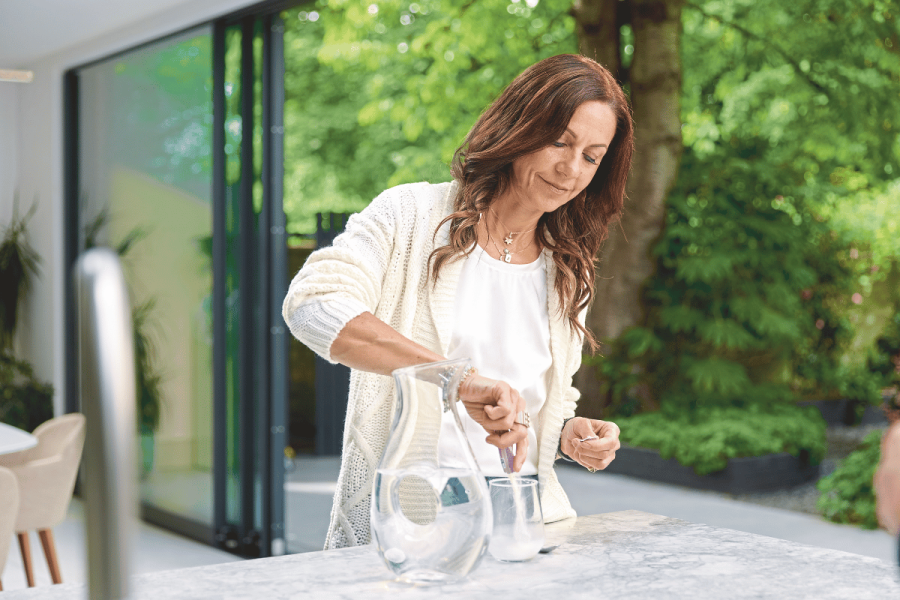
When I’m on the book tour, some of the tests that I’m going through and some of the results I’ve revealed in the book will be updated as well because we human beings are a work in progress, and there’s always something to learn about yourself or improve upon, or another food to discover. That’s the beautiful thing about life – it’s never static.
It’s not a biohacking book but I do mention biohacking because it’s just self-optimisation. It’s about learning what you can about yourself and then tweaking the bits that need attention.
When I talk about cancer and prevention and the things I’ve learned, I quite often get people on social media giving the response of: ‘Well, my auntie (or grandma or mother or sister) got cancer, and they were really healthy and went to the gym all the time and ate really healthy food.’ And I’m absolutely not blaming people for a cancer diagnosis.
But what I have learned over the years is that health has to be personalised, because what’s good for one person might not be good for another person, or it might not be optimising them.
When I started my “mesearch”, I realised there were fundamentals I was getting wrong. I wasn’t sleeping or eating properly, and I wasn’t nurturing myself emotionally. I wasn’t spending enough time on my mental or psychological health, and I was also overwrought with stress, which comes in many forms.
Most of us have been stressed with things like money worries or losing a job or worrying about our children or not getting on with our boss at work – which have all happened to me – but stress in the modern world is the constant connection with emails, the pings on our phones, and social media, which has just invaded our lives.
We get so wrapped up in these everyday stresses, we don’t realise we’re being disturbed by them on a micro-level, constantly, so we can forget to take five minutes during the day to slow down, take a couple of breaths, ask ourselves how we’re feeling and really listen to ourselves. (If this sounds like you, read our 3 simple ways to improve your stress and anxiety levels here!)
That thing of waking up and immediately starting to scroll on your phone? No, no, no, no, no! I don’t do that anymore. The phone is out of the room, and I have at least an hour or two clear of any screens before I go to bed.
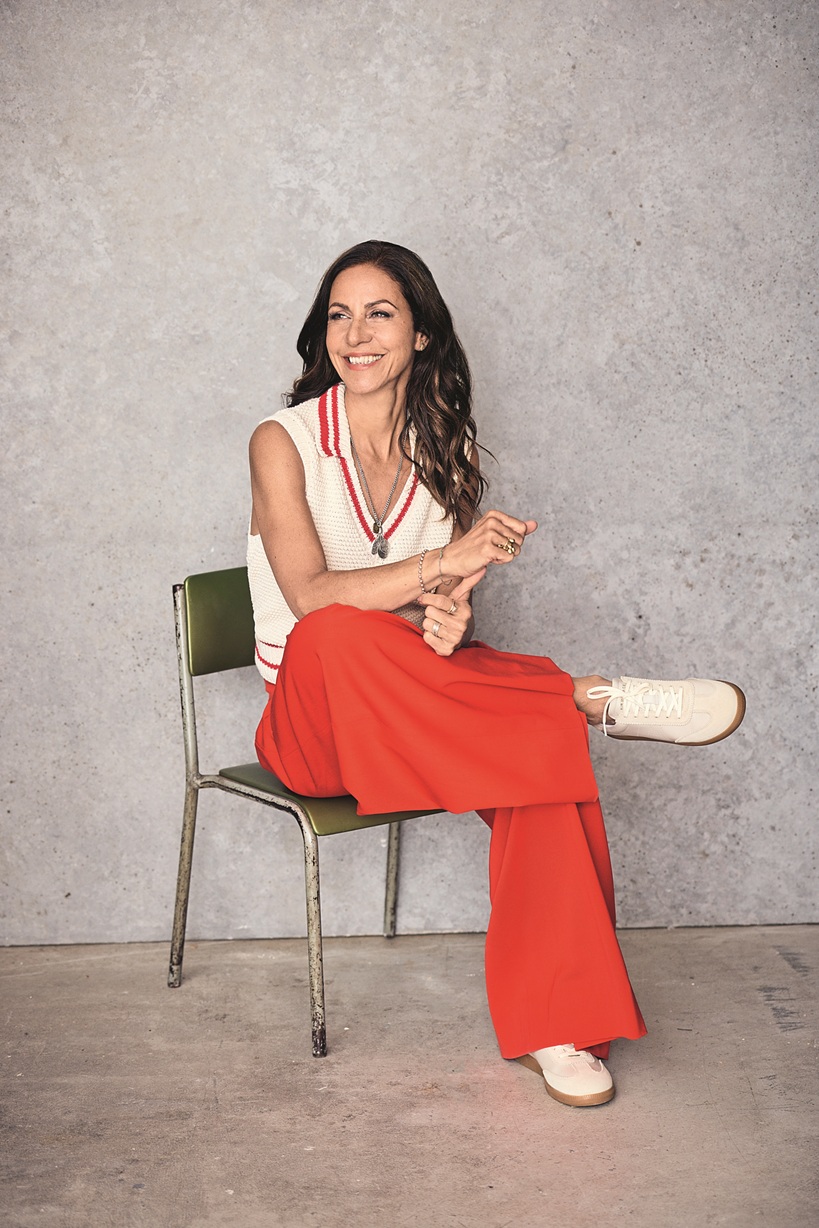
In the summertime, I wake up around 5.30-6am because that’s when the sun is rising, and I’ll give myself half an hour to sit on the window ledge outside my bathroom and get the morning light into my eyes. I’ll also do proper breath work and chanting to get myself ready for the day, and I do all of this to optimise myself because I’ve been tested and I know I’ve got this thing going on with cortisol.
In all of us, cortisol rises in the morning. That’s what gets us ready for the day ahead, but mine rises and keeps on rising to very elevated levels, which are not healthy. So, by getting the morning light in my eyes, I’m regulating my hormones and helping my cortisol to rise gently, because UV rays are different in the morning (the spectrum changes throughout the day).
And because I’m not instantly jumping on the phone and stimulating dopamine, I wake up in a much calmer way. My melatonin levels, which help us to sleep, start to drop. So, I’m telling my body, ‘This is wake up time, not sleep time’.
We can’t turn back the clock. We are living in the world we are living in, and we don’t sit around campfires anymore talking. We live inside our glass and brick boxes, we control the heat and light, and we are moving less and less.
So, modern life is doing everything it can to fight against our ancestral body systems. And what we need to do is seek out the things we know are going to be helpful to us in the 21st century. In Hack Yourself Healthy, I talk to the world-renowned expert professor Satchin Panda about how important it is for our circadian rhythms to synch with the day and night cycle of the earth.
It seems electricity has a lot to answer for, because we stay up later than we were ever designed to thanks to indoor lighting, which isn’t very healthy in itself, so I dim the lights in the evening and wear blue light-blocking glasses for minimum light disruption.
Circadian rhythms are important in the Ayurvedic world too. That’s why I went to the Ananda spa in India to experience Ayurvedic medicine, which dates back more than 5,000 years. It is based on the principle of balancing the body, mind and spirit to promote overall health and wellbeing, which is exactly the right approach in my opinion.
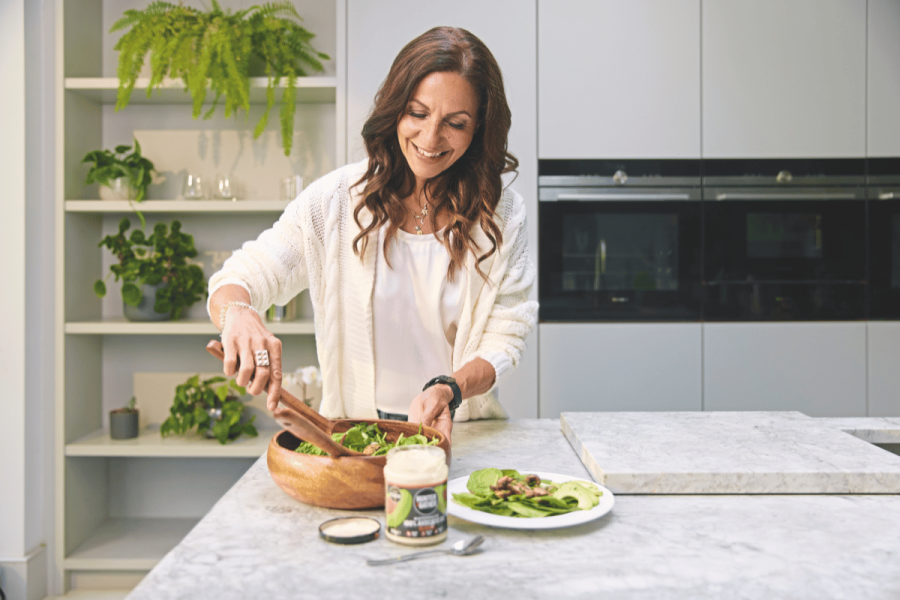
It’s personalised. Doshas are the fundamental energies that govern all physical and mental processes in the body and mind, and Ayurveda is about balancing those. I had some extraordinary treatments there; everything was overseen by a doctor who created a plan, including what I could eat for the week. I came back feeling cleansed and more connected to nature than ever.
I take regular walking breaks throughout the day to get away from my desk. Aside from the physical benefits of walking in nature, my experiments with the professors at the European Centre for Environment & Human Health, at the University of Exeter, emphasise how important nature exposure is for productivity and wellbeing and demonstrate that we could save the NHS billions – the exact sum is in the book, and it is mind blowing – if we all took regular daily “nature snacks”, as I do.
So, it really is worthwhile taking regular breaks in green spaces throughout the day, because it’s something that saves you – and saves our health system.
My philosophy on nutrition has completely changed since my diagnosis. I’ve always been slim, and there’s definitely a genetic component to that because my dad and son are slim too ( I am the one that can have the puddings and everyone goes, ‘Where do you put it all?’).
So, while I still have a very large appetite, I’ve completely changed what I eat because I had a very high-sugar diet. Now, I have a properly balanced diet, and I don’t snack anymore because it’s not great for us to be constantly digesting.
I found it really hard because I used to snack all the time. However, going back to ancestral living, we certainly ate opportunistically, but it would literally be something like a cherry from the tree or a berry from the bush; not crisps at 11am and dunking biscuits at 4pm.
I used to love going out quite late at night for dinner. But what I’ve since realised is you want to be repairing and rejuvenating when you’re sleeping, and that doesn’t happen if you’re having dinner at 9pm and going to bed at 11pm.
Now, I do an overnight fast for 14-16 hours as that’s really good for repairing the gut. Professor Panda also recommends avoiding ‘your first calorie’ for the first one or two hours after waking to avoid any interplay with cortisol, which is high in the morning. That includes my milky coconut coffee, so I start my day with filtered water at room temperature and then my Hunter & Gather Restore electrolytes.
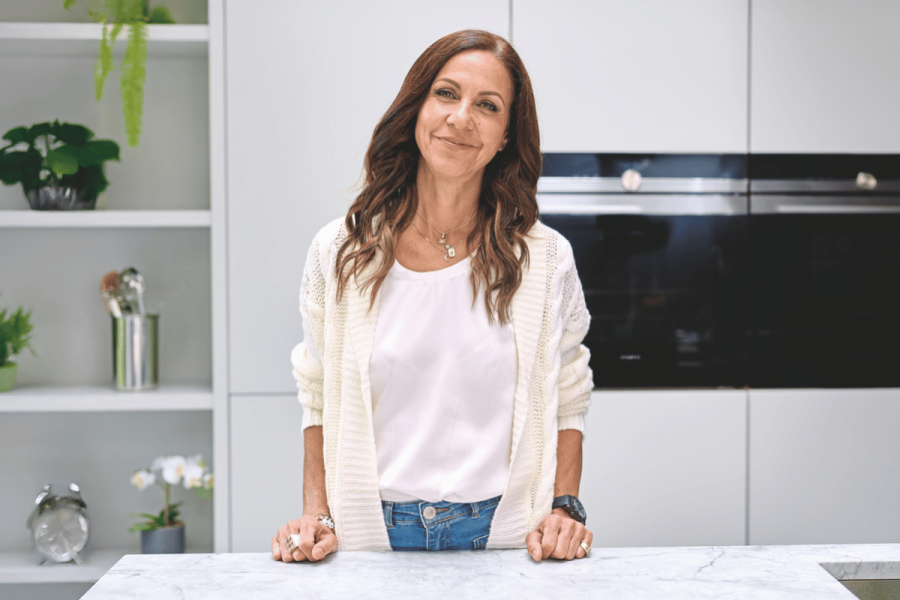
I post about my savoury breakfasts on Instagram quite a lot. People are like, ‘Wow, I’m not sure I could eat steamed broccoli and cabbage for breakfast’. And I’m like, ‘Of course you can. It’s just lovely!’ I always include some protein and fats in the morning because that helps to reduce sugary cravings, and I’m well known for drinking my olive oil and putting it on my vegetables.
It’s high in polyphenols, which has been reported to provide some anti-cancer effects, and I’ve even got the team at Hunter & Gather doing olive oil shots now! I’ve loved using their products for a long, long time, including their seed oil-free mayo, avocado oil and olive oil, and working with the co-founders, Amy and Jeff, is like a marriage made in heaven.
It’s not that easy to find natural, health-first, B Corp brands to work with that care about human and planetary health, so it’s a genuine partnership born out of equal passions.
After eating my vegetables and clean protein for breakfast, I’ll have a big bowl of berries. Berries are the super foods of life, and I have mine with a plant-based coconut yoghurt, seeds and nuts, and I have flax seeds regularly.
Then, a couple of times a week, I shake on my Hunter & Gather Rise & Glow Collagen powder in delicious mixed berry flavour, and it makes the yoghurt even thicker and creamier! It sounds like a lot, but that lasts me all day until I can come home and eat dinner with my kids around 5.30pm.
Hack Yourself Healthy is about personalised medicine. But there are a few things we already know that are healthy for everybody: quitting smoking, reducing your alcohol intake, and sleeping well are universal truths, and eating earlier is also one of them.
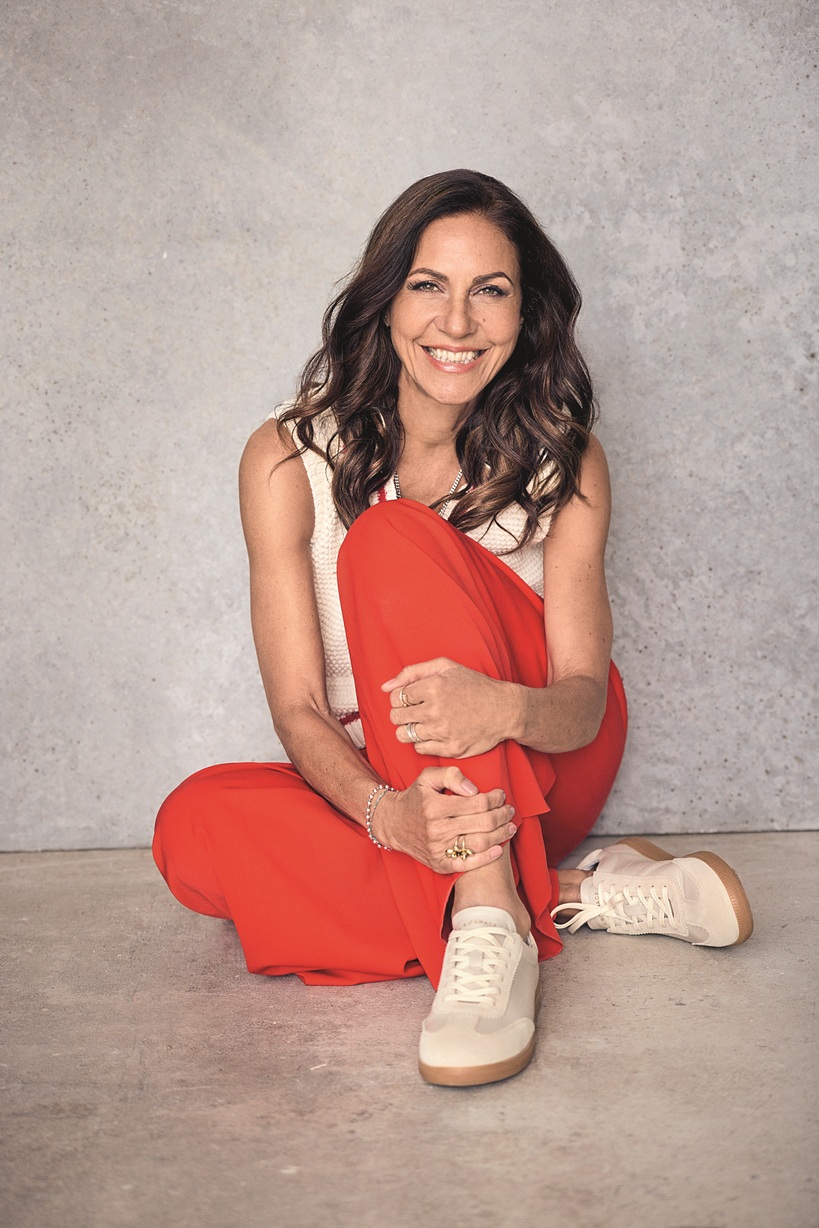
I would say if you wanted to make a change in your health, try finishing dinner as early as possible and stop snacking on the sofa till 10pm. Reducing stress is also crucial, and I genuinely believe that a lot of disease stems from held internal stress. Stress releases cortisol and adrenaline, increases your heart rate and blood pressure, and redirects blood flow to the muscles (so you can run!).
This is the classic fight-or-flight response, which is very useful when you’re trying to escape danger, but long-term chronic stress can lead to cardiovascular problems, digestive issues, muscle pain and tension, a weakened immune system, and even sleep disturbances.
And there it begins. If you have a bad night’s sleep, your insulin resistance won’t be so good the following morning, so you won’t handle your food as well and you can become more stressed because your cognitive function isn’t as good.
I call it the circle of doom, but let’s not leave it on a down note! Easy hacks to reduce stress include doing some simple breathwork (inhale softly through the nose, exhale softly out of the nose for longer, and repeat for a couple of minutes); going for a walk in a green space – just looking at trees can help; and giving someone a hug.
Maybe I should have called the book ‘Hug Yourself Healthy’!
Julia Bradbury is an ambassador for real food brand Hunter & Gather (hunterandgatherfoods.com). Her new book, Hack Yourself Healthy: Reclaim your health to boost your energy, clear your mind and live a long, vibrant life (£22, Piatkus), is available to buy from September 4.




